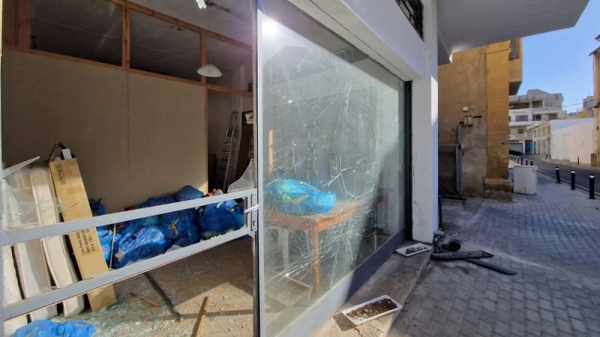EU raises Cyprus NGO bombing with authorities during visit
The European Commission says it has discussed with Cypriot authorities the 5 January bombing of an NGO fighting racism in the capital Nicosia.
A commission spokesperson said the issue had been raised by EU home affairs Ylva Johansson during her visit on the island only days after the offices at Kisa were bombed.
Kisa is a Nicosia-based NGO that campaigns against discrimination and provides free legal and social services to migrants, refugees and asylum seekers.
The bombing comes amid an "alarming increase in hate speech and hate crime" throughout the EU, says the European Commission.
That rise is partly linked to antisemitism, given the Israeli destruction of the Gaza Strip, followed by attacks against Muslim communities and other minorities in the EU.
The Cypriot police said they are currently investigating the Kisa bombing, noting that the explosion caused damages to the organisation’s office as well as to a nearby parked car.
"The investigation carried out on the scene revealed that the explosion was caused by an improvised explosive device. Evidence was collected from the scene. The investigation is ongoing," said the police, in an email.
But such statements have been given short shrift by Kisa, who say that there is a state-led campaign to silence the NGO given the political toxicity surrounding migration and asylum in the island-nation.
"The bomb attack against us, and the authorities’ reluctance to even acknowledge it, are a wake-up call for Europe," said Leandros Savvides, acting chair of the steering committee at Kisa, in a statement.
A query on the bombing and on documented public xenophobic discourse sent by this website on Thursday to a Cypriot government spokesperson has so far gone unanswered by the time of publication.
Civil society a target
But the attack on Kisa is also part of a wider pattern of rising hatred and attacks, also against civil society.
In Greece, 16 humanitarian workers are currently in court for having rescued migrants on the island of Lesbos, in a case that has dragged on for years.
And a report by the Vienna-based Fundamental Rights Agency found that in 2022 human rights defenders and other activists continued to face threats and attacks in the EU from both private and public players.
The racist attacks and crackdown on civil society also comes amid an election year that could see a far-right surge in the European Parliament and elsewhere.
Germany is currently grappling with a major rise in support of the far-right Alternative für Deutschland (AfD), which had been caught discussing mass deportations at a November meeting, first revealed by the investigative outlet Correctiv.
Chancellor Olaf Scholz has since condemned the plans as "fanatics with assimilation fantasies."
Yet the AfD is still polling first place in all five of Germany’s eastern states given its wider disdain against migrants, a popular trope used by politicians to secure votes.
Those possible gains come against a background of a similar rise in the Netherlands, where the far-right populist leader Geert Wilders won national elections last November.
The far-right Identity and Democracy (ID) party group is now projected to grow from 60 to 87 seats in the European Parliament, according to a December survey.
For its part, the European Commission says it is upgrading its anti-racism coordinators to the status of envoys.
Such envoys will be mandated through specific EU funded projects to tackle the racism both on and offline, says the Brussels executive.
But Human Rights Watch, an US-based NGO, says other EU level efforts to tackle racism have often gone unaddressed at the national level.
In a report out earlier this week, it faulted the EU for falling short on its stated commitments to uphold and protect rights in 2023.

